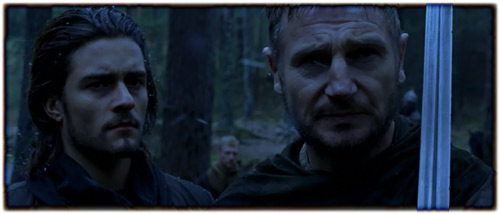Why didn't God just start with grace?
 Wednesday, January 13, 2016 at 5:21PM
Wednesday, January 13, 2016 at 5:21PM Why didn't God just start with grace? Why put His people through the Old Covenant Law with it's painfully exhaustive list of "do's and don't's?" Why not go right to the good stuff?
Because the Law had a temporary, but genuinely merciful purpose.
"WARNING, ACTIVE GRIZZLY AREA. STAY AWAY."
Our tour group was pulling over at a rest stop in Denali National Park, Alaska. As we were getting out, our tour guide immediately cautioned that we were in active Grizzly habitat. There was a sign about 300 feet away that read, "Warning, actively grizzly area. Stay away."
If we had chosen to ignore the posted warning sign and gotten between a Grizzly sow and her cubs, the surgeon's needle sowing our scalps back on would have served as a painful reminder just how foolish it would have been to ignore the clear and present danger. Ignorance hurts. Foolishness hurts even more.
Similarly, our medication bottles often come with a warning label saying, "Do not exceed recommended dosage." The label itself cautions that there is something at risk: You. But, "If one pill makes me feel good then five pills would make me feel great!" Maybe so, but the intense vomiting or drug-induced coma that follows will be a painful reminder that sin hurts.
The law was a temporary form of grace. The Old Covenant couldn't offer a cure for foolishness and the even greater pain of trying harder not to be so, but it mercifully made clear the painfulness of chosing against life. Against health. Against wholeness.
We'd beg God to free us from chronic arguments with our spouse, the addiction to emotional eating, the pull of porn that won't let us go. Sin hurts. Ignoring the warning signs hurts. And when it hurts that badly, you want help: When you spin your wheels long enough, you want to stop the madness.

SO THE LAW CREATED A CRAVING FOR GRACE.
"As long as an intense longing for deliverance from sinning has not been wrought, they will naturally fall back into the power of the law and the flesh. The holiness which the New Covenant offers will rather terrify than attract them..." - Andrew Murray
Ask any addict or person who has tried harder to be a better person: Grace is far more attractive to the powerless than it is to the prideful. The Old Covenant Law's painful exposure mercifully ushered in a craving for authentic goodness, a desire to get out from underneath sin's manure pile. Sin hurts. Goodness restores us. We'd beg God to free us from something that had a hold over us.
Law created a craving for grace.



















